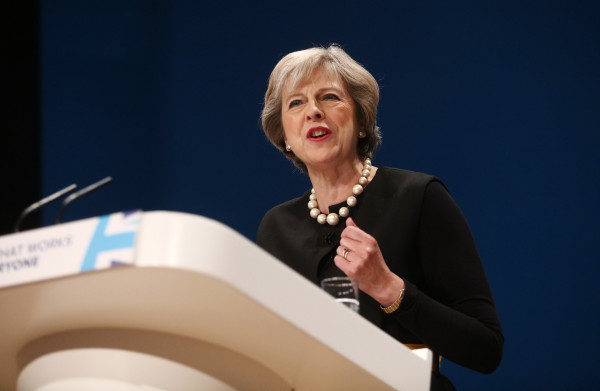

Now the UK has started the legal process to divorce from the European Union, investment professionals and economists have outlined what this could mean for investors.
Prime minister Theresa May has triggered Article 50 today (29 March), which sets the ball rolling for the UK to unravel from the European Union.
Investment veterans have given their view on what the Brexit negotiations could mean for currency and assets.
Richard Stone, chief executive of the Share Centre, said he thought the value of the pound would continue to sag over the next two years, particularly if the Bank of England is tempted to keep interest rates low to support the economy.
He said keeping interest rates low should boost asset prices, including housing, as investors try to prevent the erosion of their cash.
Personal investors, Mr Stone said, should identify businesses likely to benefit from weaker sterling, such as FTSE firms that have large-scale overseas operations and which earn revenues in other currencies.
“For investors, now is the time for calm heads and a clear sense of purpose as we strive for the best deal possible with the EU and new beneficial deals with partners around the world.”
Michelle McGrade, chief investment officer of TD Direct Investing, said investors need to stop being blinkered by politics and should instead focus on the fundamentals, such as market confidence, unemployment, and inflation.
She pointed out that the recovery in Europe is gaining momentum and questioned whether the Dutch election is the catalyst European markets needed.
Research from TD Direct found investors were divided on whether triggering Article 50 will have a positive impact on their portfolios.
Ian Ormiston, fund manager of Old Mutual’s European Smaller Companies fund, said: “Investing in European equities is not the same as investing in Europe."
This comes as figures published yesterday (28 March) revealed that European equity funds had suffered the worst outflows in the nine months since the Brexit vote.
“No one knows how key political events are going to transpire, just as no one knows what the stock market’s reaction to those events is likely to be," Mr Ormiston said.
"As investors, let’s try to stick to the knitting and focus on company fundamentals.”
John Bennett, head of European equities at Henderson Global Investors, said a market shift towards value rather than growth stocks could work in Europe’s favour, particularly as the Continent is home to many value stocks.
He said he accelerated this tilt towards value in the second half of 2016.
Mr Bennett, who also runs the Henderson European Selected Opportunities fund, said he was particularly keen on European banks, despite the sector being “very easy to dislike”.
“History shows that investing in European banks would have been a spectacularly wrong call from 2008 until recently, but we feel a combination of vastly improved capital ratios and a turning point in interest rate expectations has made the industry once again investable.”
Hetal Mehta, European economist at Legal & General Investment Management, said: “So far, Brexit has not been so bad for the UK economy.”
She said she thought it was unlikely that initiating the formal process would cause a material economic downturn, adding: “The main danger is around the nature of the negotiations, and the shifting risks around the UK.
“However, if the discussions are well-mannered and make good progress, the risks should diminish and we believe that the BoE could turn markedly hawkish as a result.”
Yet Michael Stanes, investment director at Heartwood Investment Management, said the start of the negotiations means the hard work now begins for the UK.
“Triggering Article 50 no doubt marks a period of ongoing uncertainty for UK business and markets, but perhaps there is also some relief that the process is finally underway.”
Mr Stanes said his firm continues to be cautious on UK assets and expects higher inflation to weigh on real income growth this year.
katherine.denham@ft.com



